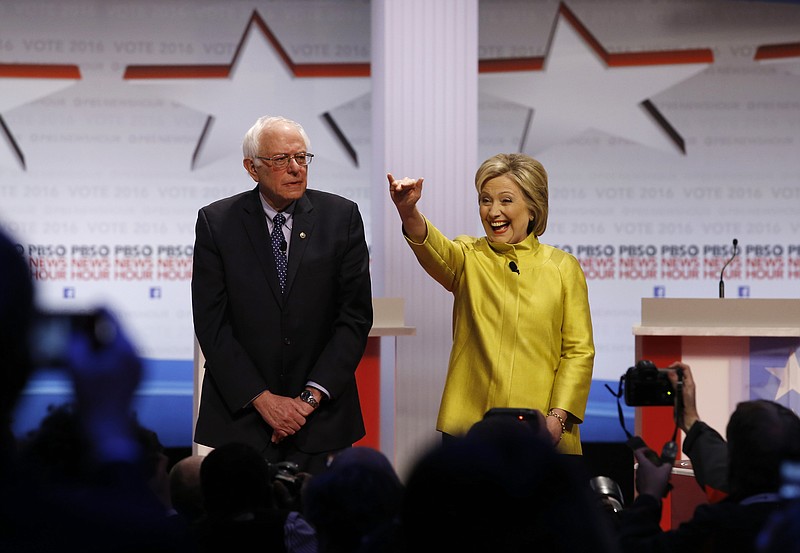It's a sad time for Hillary Clinton's fans. Well, I guess that's obvious, since she got clobbered in New Hampshire. But it's the way she went down that was particularly painful. Bernie Sanders got more than half the women's vote, mainly because younger women raced off to his corner in droves.
That triggered a generational cross-fire. "I'm frustrated and outraged by being constantly attacked by older feminists for my refusal to vote according to my gender," a college sophomore told CNN.
Women tend to vote for candidates who support a strong social safety net, which is not exactly a problem in the current Democratic race. Historically, they've been less likely to show a particular preference for other women.
Still, the idea of a woman as president is a very important marker for people who grew up in a time when medical schools had tiny quotas for female students, newspapers had "help wanted" ads that divided everything by sex and half the population could get credit only in their husband's or father's name. Younger women don't seem to share that yearning, and there are wounded feelings on both sides.
This is hardly the first time progressive women have had a generational conflict. Once women won the right to vote, the older suffragists wanted to keep battling for equal rights, while many of their juniors felt they had other things to do. "'Feminism' has become a term of opprobrium to the modern young woman," Dorothy Dunbar Bromley wrote in a famous 1927 essay that suggested militants of the old school had a demoralizing tendency to wear unflattering shoes.
In the modern era, whenever cross-generational sniping occurred, younger women always had a champion in Gloria Steinem. "Their activism is fantastic," she told me in a post-New Hampshire phone interview. Steinem, a Clinton supporter, was drawn into the fray when, during a TV appearance, she seemed to be suggesting that younger women were supporting Sanders because they wanted to meet boys. She says she misspoke, that she was talking about issues of power, not sex: "The person who's being written about is not me." Garbling a message is something that can definitely happen on the umpteenth leg of a book tour, and if anybody has earned the right to be taken at her word, it's Steinem.
It's easy to see why Sanders is attracting the youth vote. His events are electric. When he demands free tuition at public colleges and universities, the audience is practically orating with him, calling out their student loans ("Over 200,000, Columbia University graduate school!"). When he goes into his Medicare-for-all health care system, they shout their insurance deductibles ("5,000 for a single person!").
On the other hand, he hasn't grown much as a candidate. All politicians tend to give the same stump speech over and over, but Sanders is practically in the Marco Rubio category when it comes to repetition. Clinton is nowhere near Sanders' class as an orator, but there can be something compelling in her willingness to just dig in and trust the audience to follow.
It took almost 40 years after we put men on the moon before a woman won a major presidential primary. That was, of course, Clinton in 2008 in New Hampshire. She didn't win the election, but she was so credible, and finished so strong, that the nation came away believing that a woman in the White House was a completely normal idea.
If the younger voters who are flocking to Bernie Sanders don't share their elders' intense feelings about needing to elect a woman president right now, it's partly because Hillary Clinton helped create a different world. So no matter what comes next, everybody's a winner.
The New York Times
